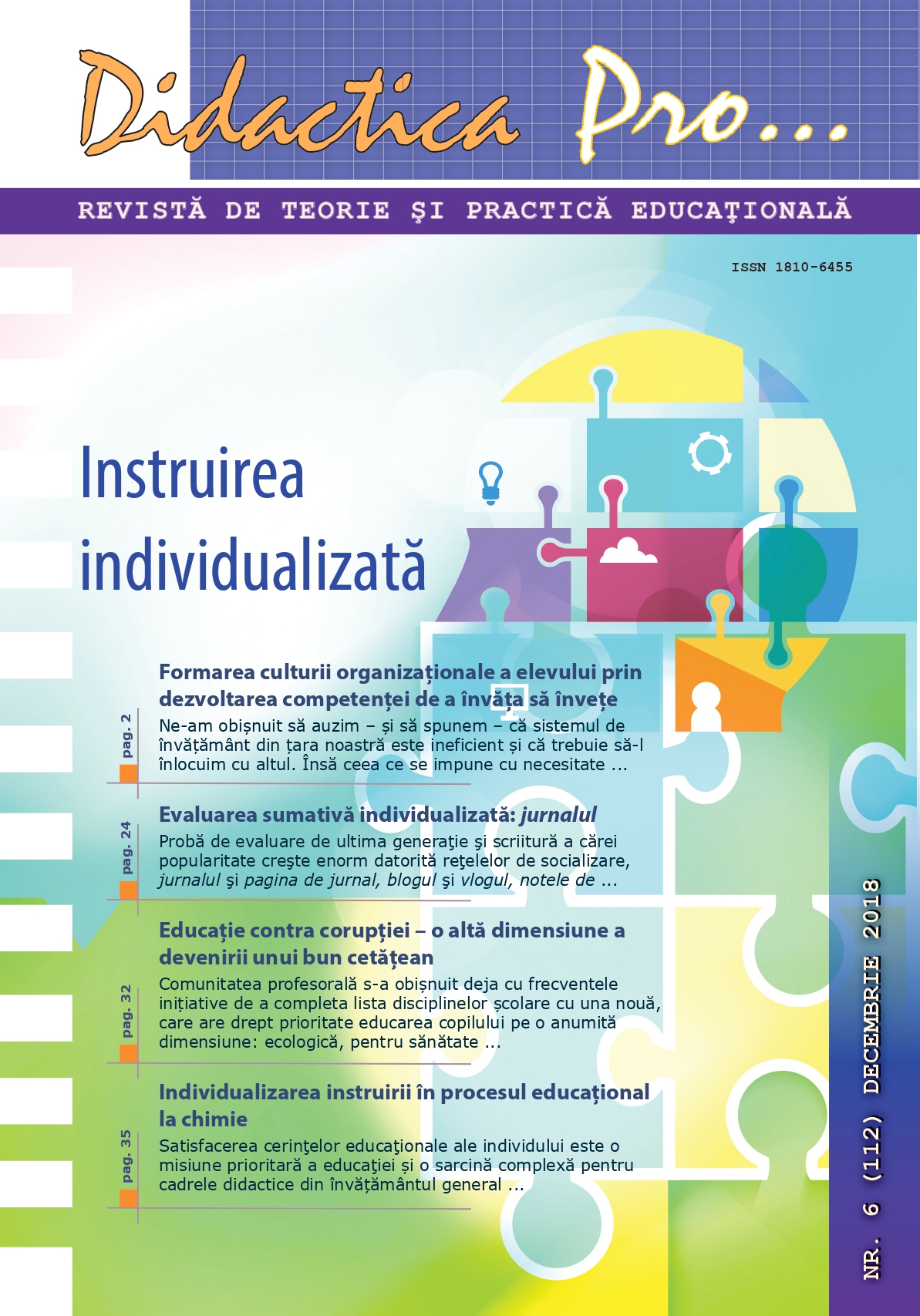Instruirea individualizată
Individualized Teaching
Author(s): Cristea SorinSubject(s): Social Sciences, Education
Published by: AO Centrul Educaţional PRO DIDACTICA
Keywords: Individualized teaching; forms of class organization; modern theories;
Summary/Abstract: Individualized teaching represents a general principle that regulates teaching activity in the context of any form of organization: formal and nonformal; frontal, microgroup, and individual; lessons etc. Its sphere of reference includes all actions subordinate to instructional activity: teaching, learning, and assessment. At curriculum project level, what becomes crucial is the action of individualized learning, which is didactically tied to that of individualized teaching (fulfilled by the common rapport and repertoire between teacher and students) and individualized assessment, being strategically engaged, in a formative/self-formative sense, throughout the whole length of the teaching activity (the lessons etc.). The exploration of this principle demands managerial decisions concerning a global acquaintance with the student (pedagogical/didactical, social, and psychological), a gradualization of specific objectives, a diversification of the employed didactic methods and techniques, and a combination of various forms of class organization (frontal, in microgoups, and individual). The principle of individualized teaching ought not to be confused with individual instruction. It is a principle based on the psychological constructivist theories of learning, which propose pedagogical teaching models of a structuralist-genetic type (Piaget) and of a socio-cultural type (Vygotski, Galperin, and Bruner). ”Modern theories” highlight the importance of this principle in the regulation of certain ”multiple approaches to knowledge”(Gardner) or the optimization of rapports between ”culture, mind, and education”(Bruner).
Journal: Publicaţia Periodică Revista “Didactica Pro…”
- Issue Year: 18/2018
- Issue No: 112
- Page Range: 54-56
- Page Count: 3
- Language: Romanian

